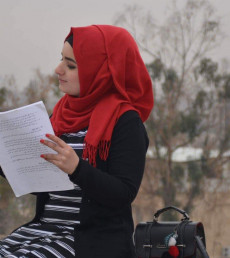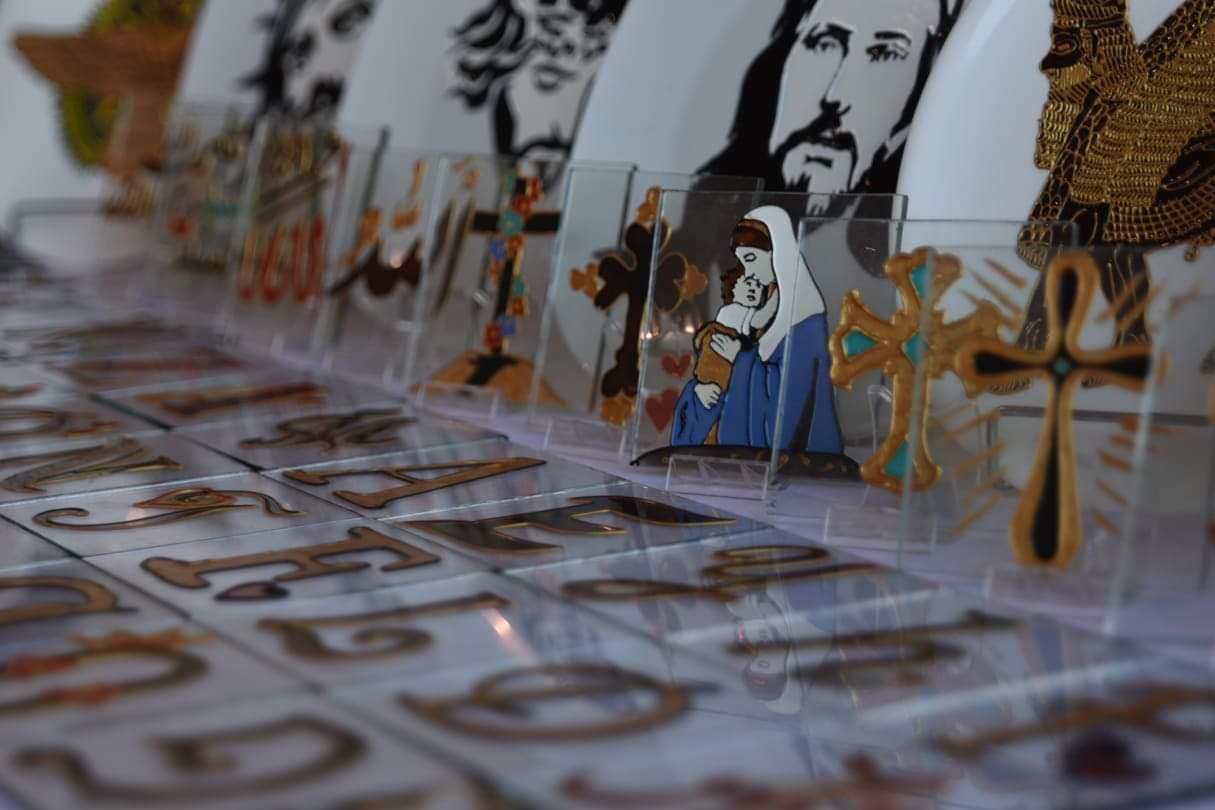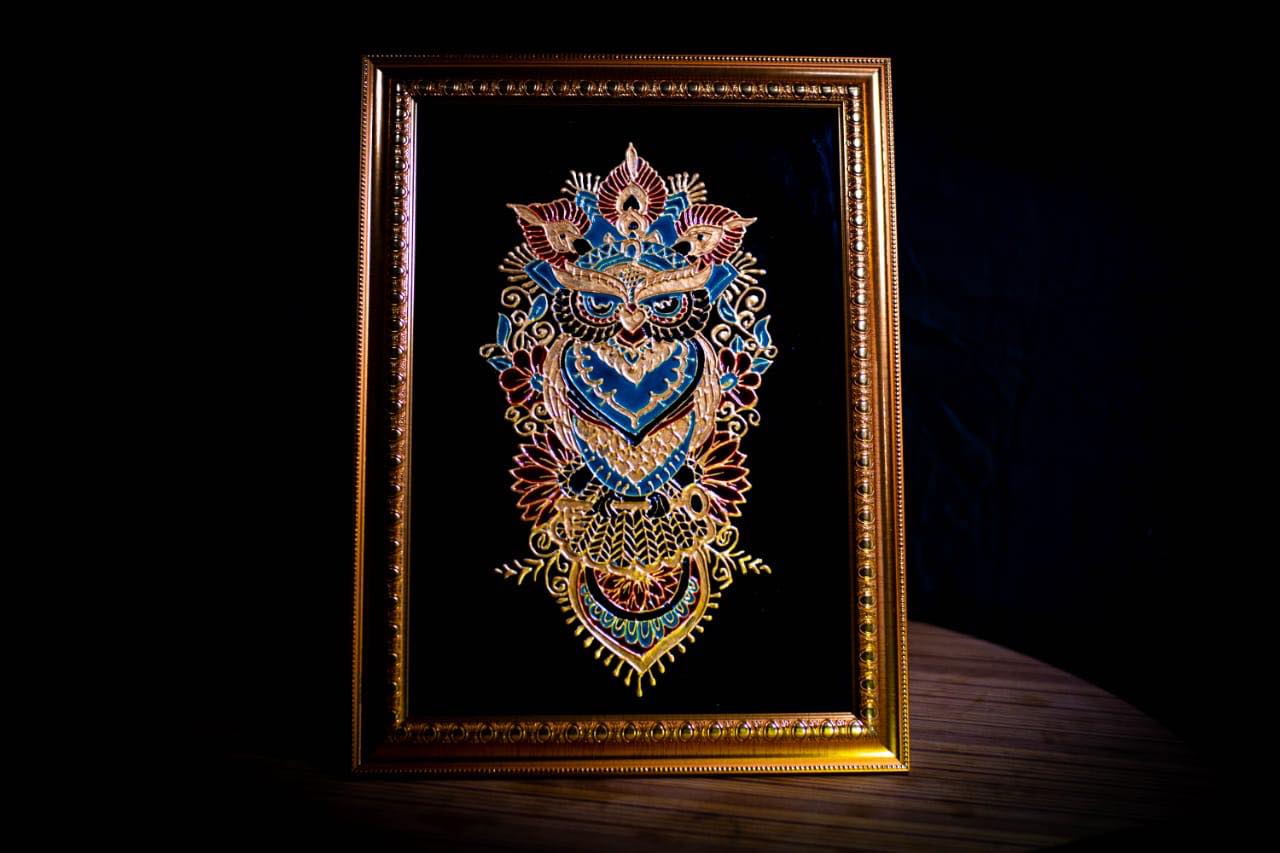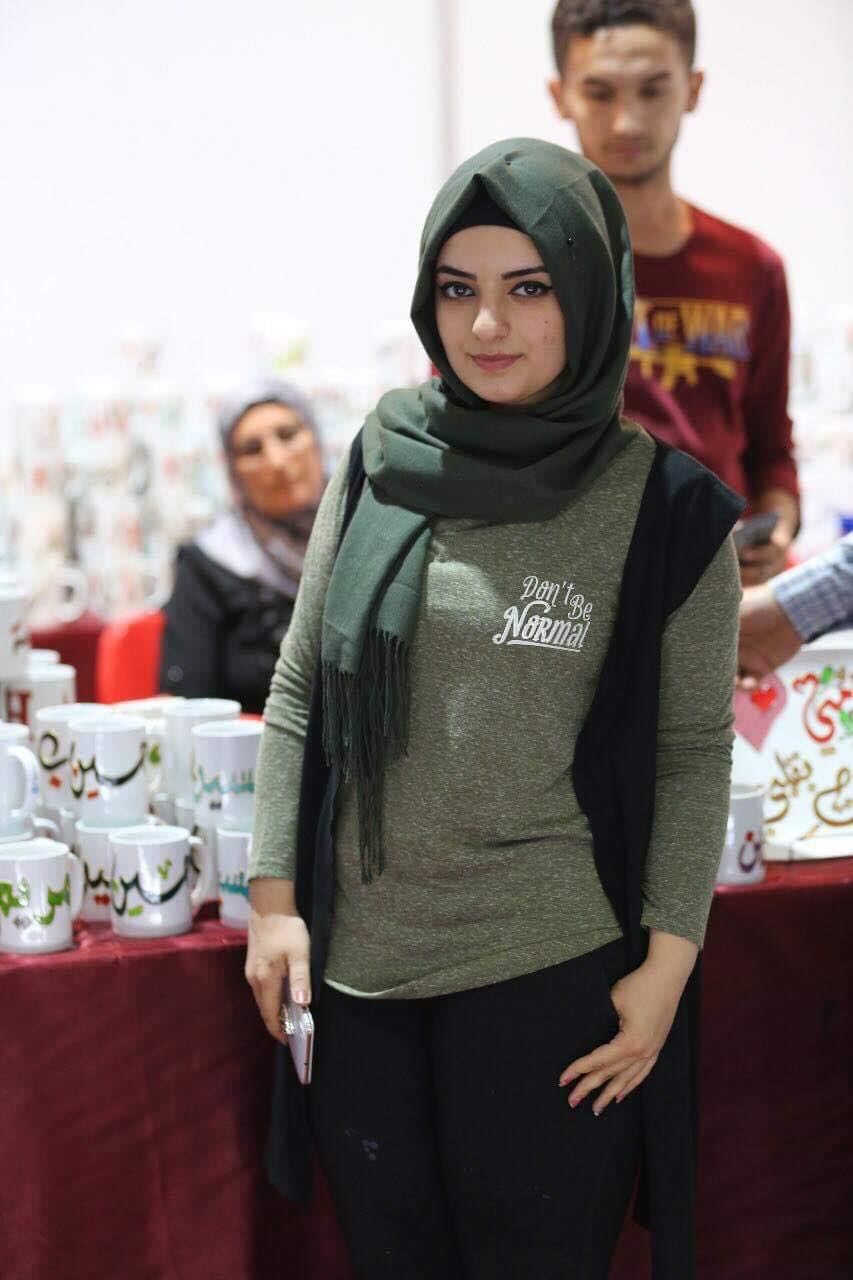
Yusra Ali - Nineveh

Yusra Ali - Nineveh
22-year-old Dhuha Shabaki was born in a society in Nineveh province that does not give women the freedom to choose a path in their lives, but suppresses them based on traditions of the Shabak community.
"Women have to knock on a number of doors in order to be able to see the sky and light, to be able to breath, and to get rid of that distress that only leads to suffocation," says Dhuha.
While being in displacement, she was able to find herself and achieve what she aspired to, and has been able to help herself and her family despite the difficult circumstances that she went through.
Displacement
Dhuha experienced displacement at a young age, forced to leave her neighbourhood without even being able to bid farewell to her neighbourhood friends.
"Being displaced is not as easy as it’s widely talked about. leaving your world behind and heading towards the unknown becomes a gamble one must take, because trying to survive is the ultimate goal of every human being," says Dhuha.
“On 6 June 2014, when I was in the 9th grade, I was studying for mathematics exams, and I did not expect what happened to happen, as I was exhausted [from working] to achieve a good future in which I could help myself or my family."
"On that disastrous day, at 1:30 AM, we fled Mosul to Bartella district in the Nineveh Plain. The scene was very horrific, as if it was doomsday; all of the people were running in the streets to escape, in fear of an organized group called ISIS."

After a short time, Dhuha and her family learn that they had lost their home and possessions, as everything they owned had been confiscated by ISIS when it took control of the city of Mosul in June 2014. Thus, they had nothing left to stay behind for, and they headed to the capital, Baghdad.
The real transformation in Dhuha’s life
Dhuha started a project with only five thousand Iraqi dinars (the equivalent of about $4,21 in its current value), in al-Mutanabbi Street in Baghdad, and she was able to convert that amount into a business with which she could earn an income.
"My uncle lives in Najaf province. When we fled to Baghdad, he came to see us and as he was leaving, he gave me five thousand dinars, and this very small sum was the beginning of my work and my start in art," Dhuha says.
he gave me five thousand dinars, and this very small sum was the beginning of my work and my start in art
Dhuha bought cheap raw materials such as strings, needles, and artificial crystals. She began experimenting with making ornaments, and her mother and sister helped her in that endeavour.
Her first customers were friends of her family and their neighbours, and soon the five thousand dinars became twenty thousand, and became a hundred thousand and so on.
“My attempt turned into a job and a source of income. The people of Baghdad appreciate art very much, and would buy something at any price if they liked the work,” explains Dhuha.
In Baghdad, Dhuha later meets an artist who is known for her will to help other artists.
“I met the artist Sahar. She taught me the secrets of art, showed me the right way and taught me a lot of things about art. She also taught me how to expand my work. I learned how to paint on glass from her. She showed me around exhibitions and bazaars.”
Thus, Dhuha gains many friends and admirers of her work who would become regular customers as she would display her work on the sidewalks of al-Mutanabbi Street in the centre of the capital every Friday.

Dhuha says that the kindness and good nature of the people of Baghdad has made her see Baghdad her new home, as if she was born there.
“The people of Baghdad are the loveliest, the best and most kind people I have met in my life. Most of them were sympathetic to our plight. They would tell us with teary eyes that they also have experienced what we were going through.”
Dhuha's artworks evolved from writing names and drawing on vases, to more complicated forms of art such as engraving glass and creating paintings that were inspired by her background.
Returning to Mosul
When Dhuha and her family returned to Mosul after it was cleared of ISIS militants in 2017, her business became "very bad," as there was no longer a demand for her work.
“Going back to Mosul was like going back to the starting point, as I had to find new customers and exhibit my work as if I was just starting.”
After her return, she was able to complete her university studies at the Northern Technical College of Mosul, specializing in material use techniques.

Dhuha participated with her artworks in the Baghdad International Fair over the past five seasons, and at a flower festival in al-Zawra Park for two years, and other exhibitions in different areas in Baghdad, Mosul and Erbil.
She also obtained the Shield of Baghdad award and many certificates of appreciation from institutes and humanitarian organizations.
Dhuha sent a message to young people not to depend on the government employment, and not to despair when facing difficulties.
And she recommends resorting to private work, even though it can be risky and scary. But it is an effective way to obtain financial security and feel comfortable instead of waiting for a government appointment or succumbing to difficult conditions.